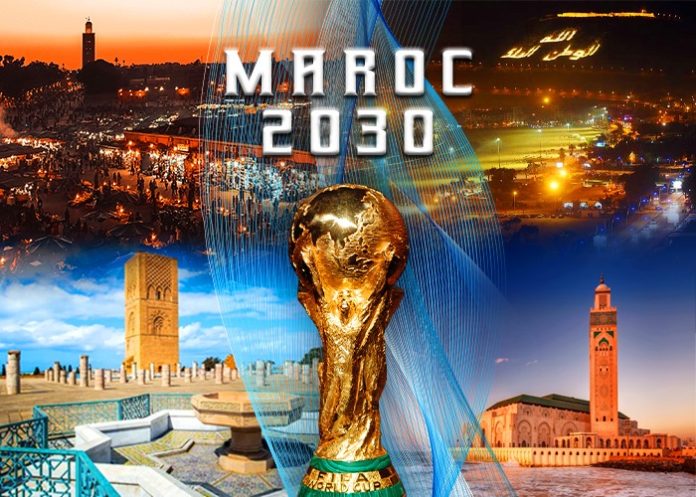The 2030 FIFA World Cup marks a groundbreaking chapter in football history, uniting Morocco, Spain, and Portugal in the first-ever transcontinental co-hosting of the event. While this partnership is a shared success, it’s Morocco that emerges as the real victor. This achievement is far more than a sporting milestone—it’s a strategic geopolitical triumph for the North African nation.
A bridge between continents
For Morocco, this World Cup isn’t just a chance to showcase its love for football; it’s a golden opportunity to strengthen its position as a bridge between Africa and Europe. Co-hosting alongside Spain and Portugal, two nations with a rich history of hosting major events, highlights Morocco’s rising influence on the global stage.
After several failed solo bids to host the World Cup, Morocco adopted a strategic alliance approach, and the rewards have been significant. While its European counterparts share familiar territory, for Morocco, this collaboration signals a groundbreaking achievement—cementing its role as a global player both in sports and diplomacy.
Economic gains that outshine the competition
The economic impact for Morocco is expected to dwarf that of Spain and Portugal. The Moroccan government has already announced massive investments to upgrade airports, roads, railways, and stadiums. These projects will leave an indelible mark on the nation’s infrastructure, creating jobs and boosting sectors from construction to tourism.
Morocco’s thriving tourism industry is poised for exponential growth, with millions of visitors expected before, during, and after the tournament. The ripple effect will extend to international investors, drawn to Morocco’s political stability, proximity to Europe, and burgeoning economy.
For Spain and Portugal, the World Cup is another notch on their belts, but for Morocco, it’s a transformative moment. The kingdom is leveraging the tournament as a catalyst for long-term development, gaining an edge in global competitiveness.
The global spotlight on Morocco
While Spain and Portugal are already well-known destinations, Morocco’s participation in hosting the World Cup provides a unique opportunity to showcase its vibrant culture, modern infrastructure, and sporting potential. Cities like Casablanca, Marrakech, and Tangier will become focal points for international media coverage, providing unprecedented visibility.
This exposure amplifies Morocco’s soft power, demonstrating its capacity to host world-class events. It paves the way for future opportunities in global sports, international conferences, and large-scale investment projects.
Morocco as an equal partner
The balance of hosting duties reveals a shift in dynamics. Morocco’s modern stadiums, including potentially hosting key matches like the semifinals, highlight its growing stature. This isn’t merely a supporting role—it’s a partnership of equals.
Spain and Portugal bring experience, but Morocco’s inclusion redefines the narrative. In a space historically dominated by Europe, Morocco asserts itself as a key player, breaking new ground for African nations.
A legacy for generations
For Morocco, the impact of the World Cup extends well beyond 2030. New and upgraded infrastructure will benefit future generations, boosting local economies and elevating Morocco’s global standing. The tournament positions the country as a hub for international sports and a preferred destination for global investors.
By teaming up with Spain and Portugal, Morocco has turned the World Cup into a strategic victory, leveraging it for national development and international recognition. While its European partners continue their legacy, Morocco is forging a new path—one that promises a brighter future on the world stage.
In the grand story of the 2030 World Cup, Morocco is not just a host; it’s the protagonist of a transformative narrative.





